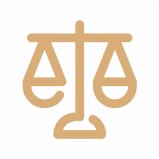Best Cyber Law, Data Privacy and Data Protection Lawyers in Indonesia
Share your needs with us, get contacted by law firms.
Free. Takes 2 min.
Or refine your search by selecting a city:
List of the best lawyers in Indonesia
About Cyber Law, Data Privacy and Data Protection Law in Indonesia
Indonesia has been rapidly advancing in the field of information and communications technology, making cyber law, data privacy, and data protection increasingly significant. Cyber Law in Indonesia is primarily regulated under the Electronic Information and Transactions (EIT) Law. This law establishes the legal framework for electronic transactions and offenses within the cyber sphere. Additionally, the Personal Data Protection Law, enacted in 2022, closely mirrors the GDPR and sets the groundwork for data privacy and protection by regulating how personal data is collected, stored, and processed. Collectively, these laws aim to foster a safe digital environment and protect the rights of individuals and organizations.
Why You May Need a Lawyer
Legal assistance can be crucial in navigating the complexities of cyber law and data privacy. Common situations where legal advice might be needed include:
- Handling data breaches or unauthorized access to personal data.
- Ensuring compliance with data protection regulations for businesses collecting or processing personal data.
- Defending against cybercrime accusations or pursuing litigation against cybercrime offenders.
- Understanding the legal implications of digital contracts and e-commerce transactions.
- Addressing disputes involving digital information or intellectual property.
Engaging a lawyer with expertise in these areas can provide guidance on fulfilling legal obligations and protecting one's rights.
Local Laws Overview
Several key legislations govern cyber law, data privacy, and data protection in Indonesia:
- Electronic Information and Transactions (EIT) Law: Established in 2008 and amended in 2016, this law provides a legal framework for information technology, including definitions of electronic agreements, documents, and signatures, and protection against cybercrime.
- Personal Data Protection Law: Enacted in 2022, this law parallels GDPR requirements, detailing the rights of data subjects and obligations of data controllers and processors.
- Government Regulation No. 71 of 2019: Regulates the implementation of the EIT Law, emphasizing electronic systems and transactions.
These laws ensure the protection of individuals' digital rights and aim to prevent misuse of technology in the country.
Frequently Asked Questions
What is the purpose of the Personal Data Protection Law in Indonesia?
The Personal Data Protection Law aims to regulate personal data processing activities, ensuring privacy, and safeguarding individuals' data rights.
How can someone report a data breach in Indonesia?
Data breaches should be reported to the Indonesian Ministry of Communication and Information Technology (KOMINFO). It's vital to notify affected individuals and take corrective measures promptly.
What constitutes personal data under Indonesian law?
Personal data refers to any data about an individual that can identify them, either directly or indirectly, such as names, addresses, identification numbers, or online identifiers.
Are there penalties for non-compliance with data protection laws?
Yes, organizations or individuals that fail to comply with data protection laws may face administrative sanctions, fines, or even criminal charges depending on the severity of the violation.
Do online businesses need to comply with Indonesian data protection laws?
Yes, any entity processing personal data of Indonesian citizens must comply with local data protection regulations, regardless of whether the company operates outside Indonesia.
Is consent required for processing personal data in Indonesia?
Yes, consent from the data subject is generally required unless there are specific legal grounds that allow data processing without consent under the Personal Data Protection Law.
How does Indonesia handle cross-border data transfers?
Cross-border data transfers are permitted under specific conditions outlined in the Personal Data Protection Law, such as adequate protection measures being in place in the receiving country.
What should I do if I'm a victim of cybercrime?
It's important to report cybercrime to the Indonesian National Police Cybercrime Unit and seek legal assistance to protect your rights and seek appropriate redress.
How are electronic contracts recognized under Indonesian law?
Electronic contracts are legally recognized, provided they fulfill the requirements of a conventional contract, including agreement, capacity, a certain object, and lawful purpose.
What is Indonesia's stance on data localization?
The Indonesian government requires certain types of electronic systems operators to store data domestically to ensure availability for law enforcement and national interests.
Additional Resources
For further information, consider reaching out to the following resources:
- Indonesian Ministry of Communication and Information Technology (KOMINFO): Responsible for data privacy regulation and policy implementation.
- Indonesia National Police Cybercrime Unit: Tackles cybercrime and assists victims in seeking justice.
- APJII (Indonesian Internet Service Providers Association): Offers support and advocacy for internet regulation issues.
Next Steps
If you need legal assistance in the areas of cyber law, data privacy, or data protection in Indonesia, consider the following steps:
- Consult with a lawyer specialized in cyber law and data protection to assess your situation and legal options.
- Gather all relevant documents and evidence to help your lawyer understand the issue thoroughly.
- Stay informed about current data protection regulations and compliance requirements by following updates from reliable sources.
Taking proactive steps and seeking expert advice can greatly improve your ability to navigate legal challenges in cyber law and data protection.
Lawzana helps you find the best lawyers and law firms in Indonesia through a curated and pre-screened list of qualified legal professionals. Our platform offers rankings and detailed profiles of attorneys and law firms, allowing you to compare based on practice areas, including Cyber Law, Data Privacy and Data Protection, experience, and client feedback.
Each profile includes a description of the firm's areas of practice, client reviews, team members and partners, year of establishment, spoken languages, office locations, contact information, social media presence, and any published articles or resources. Most firms on our platform speak English and are experienced in both local and international legal matters.
Get a quote from top-rated law firms in Indonesia — quickly, securely, and without unnecessary hassle.
Disclaimer:
The information provided on this page is for general informational purposes only and does not constitute legal advice. While we strive to ensure the accuracy and relevance of the content, legal information may change over time, and interpretations of the law can vary. You should always consult with a qualified legal professional for advice specific to your situation.
We disclaim all liability for actions taken or not taken based on the content of this page. If you believe any information is incorrect or outdated, please contact us, and we will review and update it where appropriate.
Browse cyber law, data privacy and data protection law firms by city in Indonesia
Refine your search by selecting a city.
















